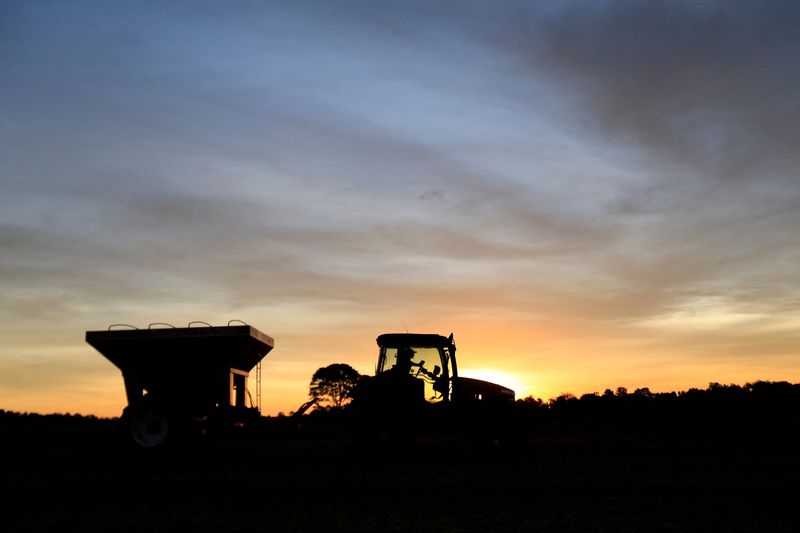By Daniela Desantis and Lucinda Elliott
ASUNCION (Reuters) - Paraguay is headed for a record soybean harvest but exporters are worried about low river levels that are slowing shipments along the key Paraguay-Paraná waterway, with a drought in central-west Brazil affecting water levels running downstream.
Industry sources and an analysis of river level data showed that the Paraguay River, the main channel used for the landlocked country's grains exports, is far shallower than at the same time a year ago, impacting barges carrying grains down river.
Paraguay is the world's no. 3 soybean exporter and is finishing its harvest of the oilseed, with a forecast record production of 10.4 million tons. Its top soybean exporters include Cargill, Viterra, and Bunge (NYSE:BG).
"Low rivers mean the barges can't carry as much, and that slows down the entire process," said Sonia Tomassone, foreign trade adviser at the Paraguayan Chamber of Oilseed and Cereal Exporters (CAPECO).
Tomassone said the overall picture was largely positive, however, given the strong production. Farmers are still recovering form a drought-ravaged harvest in the 2021/22 season that slashed production by more than half.
"It's a good volume despite the delays," she said.
The level of the Paraguay River near the key grains port of Villeta is 0.74 meters, government data show, well down from over 5 meters at the same date a year ago. Recent rains have boosted levels that were near zero but they remain critical.
DRY CONDITIONS FORECAST TO CONTINUE
Paraguay's soybean exports totaled 2.5 million tons in the first three months of the year, up from 1.6 million tons last year.
But while soy exports were strong in January and February, they slowed down in March as water levels dropped, linked to dry weather up-river in Brazil's Pantanal region, according to CAPECO.
That was despite dredging work carried out on the Paraguay and Paraná rivers, Tomassone said.
Waterways that move barges to seaports down river in Argentina and Uruguay are essential for Paraguay. Roughly 80% of all grain exports in the first quarter of 2024 traveled along rivers, according to Paraguay grains crushing chamber CAPPRO.
Strikes by agricultural ministry officials in neighboring Brazil over pay have further hampered exports by road, Tomassone added. Brazil is a major export market for Paraguayan soy that is trucked across the border.
"The departure of trucks is very slow," Tomassone said. "Unless the weather forecasts improve, the coming months are not very encouraging (for exporters)."
Meteorologists have warned that despite some recent rains, dry conditions in the Pantanal wetlands of western Brazil could continue to affect regional river sources.

"The situation is going to improve at the mouth of the Paraguay River, but (the rains) aren't lasting," said Eduardo Mingo, director of meteorology and hydrology at Paraguay's National Meteorological Center.
"The critical situation persists... the Pantanal area has been in drought for more than six months."